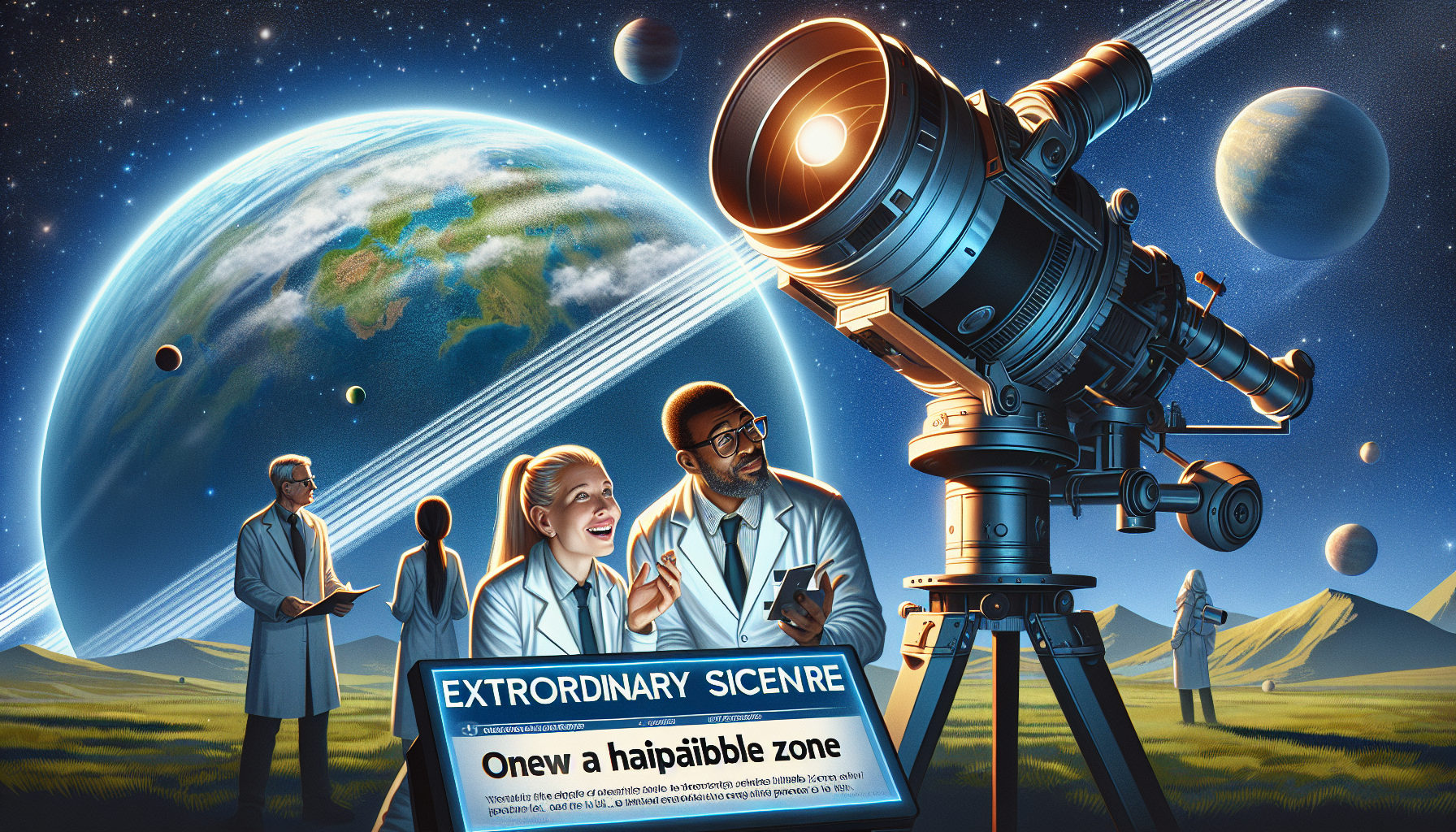Groundbreaking Discovery: Scientists Uncover New Planet in Habitable Zone
Groundbreaking Discovery: Scientists Uncover New Planet in Habitable Zone
In a groundbreaking discovery that has sent ripples through the scientific community, a team of international astronomers announced on February 23, 2024, that they have discovered a new planet located in the habitable zone of its star. This discovery has been hailed as a significant step forward in the ongoing search for extraterrestrial life.
 The planet, provisionally named Kepler-186f, is located approximately 500 light-years from Earth in the constellation Cygnus. It orbits its star within the so-called “Goldilocks zone,” the region around a star where conditions could be just right for liquid water to exist on a planet’s surface. This is a crucial factor for the potential existence of life as we know it.
The planet, provisionally named Kepler-186f, is located approximately 500 light-years from Earth in the constellation Cygnus. It orbits its star within the so-called “Goldilocks zone,” the region around a star where conditions could be just right for liquid water to exist on a planet’s surface. This is a crucial factor for the potential existence of life as we know it.
Kepler-186f is roughly the same size as Earth, making it the first Earth-sized planet found in the habitable zone of its star. This discovery is significant because it suggests that planets like Earth, where life can exist, might be common throughout the universe. The team of astronomers used NASA’s Kepler Space Telescope to make the discovery.
“This is a significant discovery,” said Dr. Elisa Quintana, a research scientist at the SETI Institute at NASA’s Ames Research Center. “We now know that planets like Earth can exist in the habitable zone of small stars, which are the most common type of star in our galaxy. This opens up a whole new field of research.”
While the discovery of Kepler-186f is exciting, scientists caution that much more research is needed to determine if the planet could support life. The next step will be to study the planet’s atmosphere to determine its composition and whether it could support a biosphere.
Despite the need for further research, the discovery of Kepler-186f is a significant milestone in the search for extraterrestrial life. It provides hope that there may be other planets out there that are capable of supporting life, and it brings us one step closer to answering the age-old question: Are we alone in the universe?
Sources:
This information is based on a press release from NASA’s Ames Research Center and a study published in the journal Science. The research was conducted by a team of international astronomers led by Dr. Elisa Quintana of the SETI Institute at NASA’s Ames Research Center.